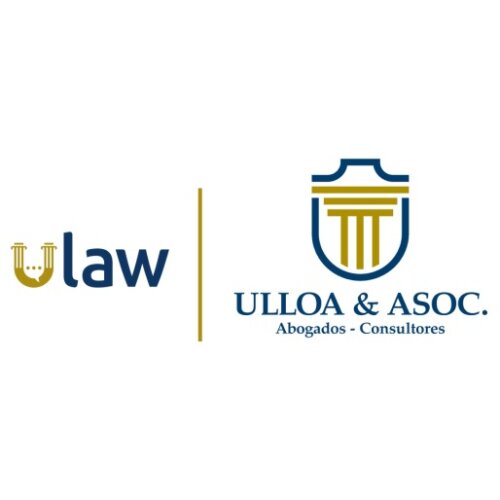Best Domestic Violence Lawyers in Honduras
Share your needs with us, get contacted by law firms.
Free. Takes 2 min.
Free Guide to Hiring a Family Lawyer
Or refine your search by selecting a city:
List of the best lawyers in Honduras
About Domestic Violence Law in Honduras
Domestic violence in Honduras is a critical issue, entrenched in social and cultural norms that often leave victims feeling isolated and powerless. The Honduran government has implemented legislation to tackle domestic violence, including the national Law Against Domestic Violence. This law classifies domestic violence as an infringement of human rights and provides provisions to protect victims and punish offenders. Despite these measures, enforcement remains a challenge due to limited resources, cultural stigma, and inadequate protection mechanisms, leading to underreporting and mishandling of cases.
Why You May Need a Lawyer
Navigating the legal system can be daunting, especially for survivors of domestic violence who may feel vulnerable or underprepared. Here are some situations where a lawyer's assistance can be vital:
- Filing a legal complaint: A lawyer can help prepare and provide evidence for domestic violence claims, ensuring they are filed correctly and promptly.
- Obtaining a protection order: Legal experts can aid in securing restraining or protection orders to ensure the safety of survivors and their families.
- Guidance during police procedures: Attorneys can accompany victims through police interviews and assist in ensuring procedures are conducted lawfully.
- Representation in court: Facing an abuser in court requires legal expertise to effectively argue for a victim's rights and protections.
- Seeking compensation: Lawyers can help pursue compensation claims for medical expenses, lost wages, or emotional damages resulting from abuse.
Local Laws Overview
The legal framework in Honduras relevant to domestic violence includes specific statutes designed to protect victims and punish perpetrators. Key aspects include:
- Law Against Domestic Violence: This legislation defines domestic violence comprehensively and establishes preventive measures, including immediate protection orders and access to shelters.
- Criminal Code: The criminalization of physical, psychological, and sexual abuse offers grounds for legal action against abusers.
- Protection Measures: Victims can seek orders that restrict abusive behavior, including prohibiting any contact with the victim.
- Family Code: Regulates family relationships and includes provisions for safeguarding the welfare of children and dependents.
Frequently Asked Questions
What should I do if I am experiencing domestic violence?
If you are in immediate danger, you should contact local authorities or emergency services. Additionally, reach out to support organizations or a legal advisor who can help guide you through the process of filing a complaint.
Can I obtain a restraining order against my abuser in Honduras?
Yes, you can apply for a restraining order through the courts with the assistance of a lawyer, who will help you gather the necessary evidence to support your claim.
What evidence is needed to file a domestic violence complaint?
Evidence can include medical reports, photographs of injuries, eyewitness testimony, and any threatening messages or communications from the abuser.
Are there shelters available for domestic violence victims in Honduras?
Yes, there are shelters and support centers available offering temporary accommodation, counseling, and legal advice to survivors of domestic violence.
Can domestic violence charges be dropped or withdrawn?
While victims can express their desire to withdraw charges, the decision ultimately lies with the public prosecutor, who may proceed if they believe it serves the public interest.
What are the penalties for someone convicted of domestic violence in Honduras?
Penalties vary depending on the severity of the abuse and prior offenses, ranging from fines and community service to imprisonment.
How can a lawyer help me if I decide to leave an abusive relationship?
A lawyer can assist in securing legal protection, navigating custody arrangements for children, and managing the division of assets.
Is mediation an option in domestic violence cases?
Mediation might be recommended for some family disputes, but it is generally not advised in cases involving domestic abuse due to the power imbalance between the victim and abuser.
What rights do children have if they are involved in a domestic violence situation?
Children have the right to protection from abuse and to have their welfare prioritized in any legal proceedings, including custody and visitation arrangements.
Can non-citizens receive legal protection from domestic violence in Honduras?
Yes, non-citizens are entitled to the same legal protections as citizens in domestic violence cases.
Additional Resources
For those seeking support or legal advice related to domestic violence in Honduras, several organizations and governmental bodies can provide assistance:
- Instituto Nacional de la Mujer (INAM): Offers support and resources for women experiencing violence.
- La Fiscalía Especial de la Mujer: A special prosecutor's office focused on addressing crimes against women.
- Centro de Derechos de Mujeres (CDM): An NGO offering legal assistance, advocacy, and support for women's rights.
- PANIAMOR: Provides workshops and resources on preventing domestic violence and supporting survivors.
Next Steps
If you are facing domestic violence and seeking legal assistance, here are recommendations for your next steps:
- Contact a local legal professional familiar with Honduran domestic violence laws to evaluate your situation and provide immediate legal advice.
- Reach out to a domestic violence support organization for emotional support and to explore available resources, including legal and housing assistance.
- In emergencies, prioritize your safety by contacting law enforcement and relocating to a safe place, such as with family, friends, or a domestic violence shelter.
- Document any evidence of abuse carefully, which may aid legal proceedings and support any claims you might file.
Lawzana helps you find the best lawyers and law firms in Honduras through a curated and pre-screened list of qualified legal professionals. Our platform offers rankings and detailed profiles of attorneys and law firms, allowing you to compare based on practice areas, including Domestic Violence, experience, and client feedback.
Each profile includes a description of the firm's areas of practice, client reviews, team members and partners, year of establishment, spoken languages, office locations, contact information, social media presence, and any published articles or resources. Most firms on our platform speak English and are experienced in both local and international legal matters.
Get a quote from top-rated law firms in Honduras — quickly, securely, and without unnecessary hassle.
Disclaimer:
The information provided on this page is for general informational purposes only and does not constitute legal advice. While we strive to ensure the accuracy and relevance of the content, legal information may change over time, and interpretations of the law can vary. You should always consult with a qualified legal professional for advice specific to your situation.
We disclaim all liability for actions taken or not taken based on the content of this page. If you believe any information is incorrect or outdated, please contact us, and we will review and update it where appropriate.
Browse domestic violence law firms by city in Honduras
Refine your search by selecting a city.
















